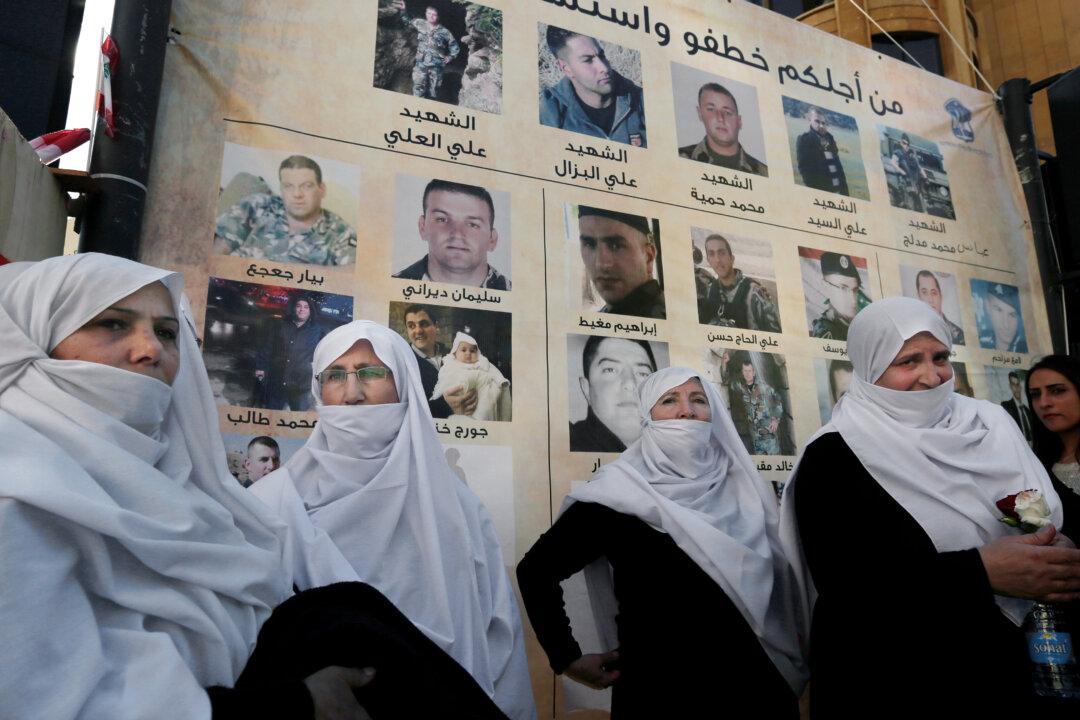BEIRUT—Al-Qaida’s affiliate in Syria released more than a dozen Lebanese soldiers and police it has held for more than a year on Tuesday as part of a Qatar-brokered deal in which Lebanon freed at least 11 prisoners, including a former wife of Islamic State leader Abu Bakr al-Baghdadi.
The release caps Lebanon’s lengthy ordeal over the fate of its soldiers while also providing the al-Qaida branch, known as the Nusra Front, with new leverage as a group that can be negotiated with.
“My happiness is beyond description,” said a Lebanese policeman, one of the 16 released on Tuesday, shortly after he was brought to the point where the exchange took place in the eastern town of Arsal, near the Syrian border.
Families and friends of the abducted soldiers and policemen, who have held a months-long sit-in in downtown Beirut, broke into a dance and cheered as news of the release reached them. Families were showered with rose petals and friends passed around sweets to the media and visitors who showed up to offer congratulations.
Earlier in the day, masked Nusra Front fighters brought the captive troops in three pickup trucks to a meeting point on the edge of Arsal to be handed over to Lebanese authorities, who were waiting along with Red Cross vehicles and the 11 prisoners who were part of the exchange.
Militants waving black al-Qaida flags fanned out across the area, with several taking positions on the roof of a building overlooking the location. The deal went ahead after trucks carrying humanitarian aid entered Arsal as part of the deal.
Later Tuesday, Qatar’s Foreign Ministry acknowledged that it had brokered the deal, saying it had received requests from the Lebanese government to negotiate.
The Gulf nation, a strong supporter of insurgents fighting to topple Syrian President Bashar Assad, relishes its role as a regional mediator and maintains channels to a broad range of parties, including Islamic militant groups like the Afghan Taliban.
“Qatar pressured Nusra Front to end this crisis in order to introduce the Nusra Front as a group that negotiates. This is linked to the Vienna talks,” said Radwan Mortada, an expert on jihadi groups who writes for Lebanon’s Al-Akhbar daily newspaper.





